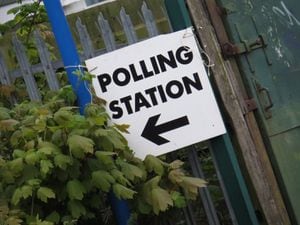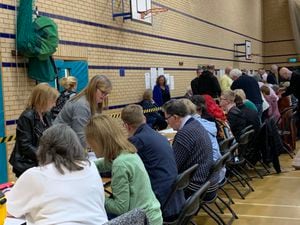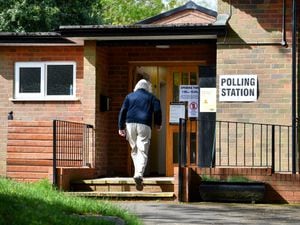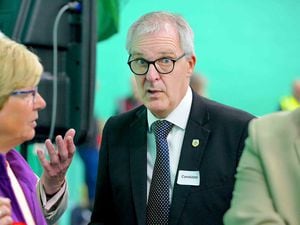Voter ID needed for the local elections and what happens if you forgot to bring any
There will be some changes to the way we vote from this week.

For this week's local elections, those wishing to vote in person now have to bring ID with them on polling day before casting their ballot.
As well as local elections, voter ID will also be required at the following from now on:
UK Parliament by-elections
Local elections in England (including councils, mayors, the Greater London Authority and parishes)
Recall of MP petitions in England, Scotland and Wales
Police and Crime Commissioner elections in England and Wales
Neighbourhood planning referendums in England
Local authority referendums in England (including Council Tax increase referendums)
Valid forms of ID
Voters can show an expired ID as long as the picture looks like them. Below are the different types of ID that voters can bring in order to cast their vote, including some travel passes.
A UK or Northern Ireland photocard driving licence (full or provisional)
A driving licence issued by the EU, Norway, Iceland, Liechtenstein, the Isle of Man or any of the Channel Islands
A UK passport
A passport issued by the EU, Norway, Iceland, Liechtenstein or a Commonwealth country
A PASS card (National Proof of Age Standards Scheme)
A Blue Badge
A biometric residence permit (BRP)
A Defence Identity Card (MOD form 90)
A national identity card issued by the EU, Norway, Iceland or Liechtenstein
A Northern Ireland Electoral Identity Card
A Voter Authority Certificate
An Anonymous Elector's Document
The following travel passes are also accepted forms of ID:
An older person's bus pass
A disabled person's bus pass
An Oyster 60+ card
A Freedom Pass
A Scottish National Entitlement Card (NEC)
A 60 and Over Welsh Concessionary Travel Card
A Disabled Person’s Welsh Concessionary Travel Card
A Northern Ireland concessionary travel pass
Voters can still bring ID that's out of date, so long as the photo looks like the person with the ID and the names match.
What happens if I don't bring my ID?
Anyone arriving at a polling station will not be allowed to vote, even if they are familiar to staff. However, people can return later with ID and then vote - it's not a 'one chance at the polling station and that's it' policy.
Voting by proxy
Those who have applied to vote on behalf of someone else are required to take their own ID, not the person's they are voting on behalf of.
Voters who have changed their name
The name on the voter's ID must match their name on the electoral register. If it does not, they will be required to register to vote again with their new details, or take a document with them that proves they have changed their name, such as a marriage certificate.
However, small differences in the voter's name will not matter – for example, if the voter's ID says 'Jim Smith' instead of 'James Smith', they will be able to vote.
Those who do not have any form of accepted ID listed above will need to apply for a Voter Authority Certificate. Applications are no longer being accepted for the elections on May 4, 2023, but can be submitted for future elections and referendums.
Why has voter ID been introduced
Back in 2014 a report on electoral fraud by the Electoral Commission published a report on electoral fraud in the UK. Although it found no evidence to suggest widespread, systematic attempts to undermine or interfere with recent elections through electoral fraud in the past, the commission described the lack of ID needed at polling stations was an “actual and a perceived weakness” of the UK electoral system, and recommended that voters are required to produce identification at polling stations.
Since 2015 the Conservative Party has been committed to "insisting on proof of ID to vote" before introducing ID checks and polling stations was inserted into 2017 and 2019 manifestos as party of its commitment to “protect the integrity of our democracy”.
Opponents say it will disenfranchise those without ID and potentially put off other voters. It is argued that some people will not turn out because of the ID checks or will be refused a ballot paper for not having the required ID and will then not return later in the day.
Estimates for the number of people in Britain eligible to vote without a pre-existing form of ID accepted for voting range from 925,000 to 3.5 million.
At pilot schemes the Electoral Commission found little evidence that voter ID requirements had a direct impact on turnout overall in its evaluation of the 2018 pilots. In 2019, for the pilots with comparable figures, turnout was down by two to six percentage points on the 2018 elections, but noted that turnout depends on various factors and changes cannot be attributed to a single one.
There have also been accusations that the policy favours older voters.
The Electoral Reform Society pointed out it includes IDs such as over-60s transport cards that are predominantly held by older voters, while equivalent forms of ID used by younger voters – such as the 18+ Student Oyster card – are not accepted.
Race equality think tank Runnymede Trust has also warned that the changes will disproportionately affect voters from racialised backgrounds. In evidence submitted to the government, it said while 24 per cent of white people in England don't have a full driving licence, those percentages rise to 39 and 47 for Asian and black people respectively, while 66 per cent of those with a Gypsy or Irish Traveller background hold a passport.”
Polling cards and where to vote
Residents will be sent a poll card in the post before the election telling them when to vote and at which polling station local to them. These usually include schools, local halls, and community centres.
Local residents can only vote at the polling station location stated on their card. The card does not have to be taken to the polling station.
Those who have not received a poll card can contact their local Electoral Registration Office.
Polling station opening times
Polling stations will be open from 7am to 10pm on Thursday.





